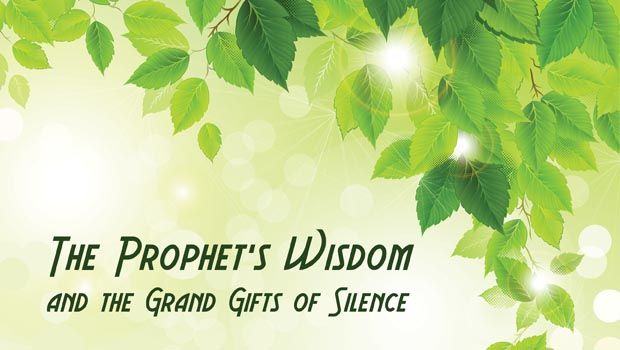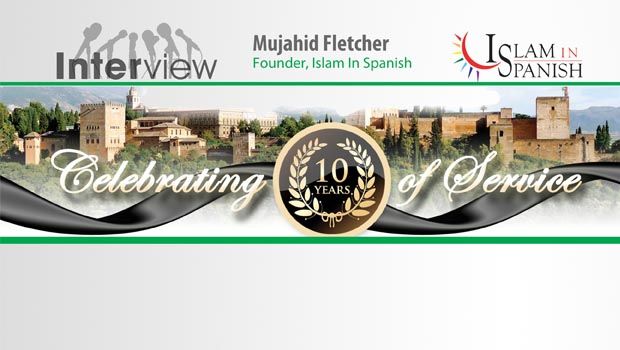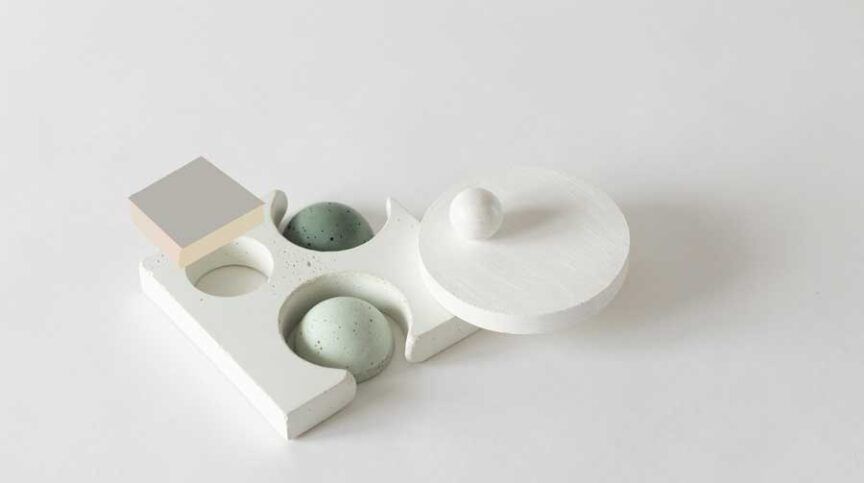Prophet Muhammad, peace be upon him (pbuh), delivered to mankind a criterion of ethical and moral values. The Quran is al-furqan, the divine message that provides the criterion of right and wrong, allowing man to discern what is true from what is false. It is well known that the Prophet, said, “Seeking knowledge is incumbent upon every Muslim, male and female” (Ibn Majah). But the aim is knowledge imbued with a beacon of light to move an individual along the path, from rules and rituals for their own sake into the realm of discernment and meaningfulness, thus producing wisdom. When Prophet Abraham and his son, Ismail, (peace be upon them) were building the house of worship, they prayed, “O our Sustainer! Raise up from the midst of our offspring an apostle from among themselves, who shall convey unto them Your messages, and impart unto them revelation as well as wisdom…” (Quran 2:129).
Buttressing the point that it is not just knowledge we are after, but knowledge that is applied with discernment so that we act in a clear-sighted and judicious way, the Prophet used to supplicate, “O Allah, I seek refuge in You from useless knowledge.” This dua points to the application of knowledge to improve ourselves, moving beyond a superficial knowing of information or facts to a deeper understanding so that we choose to apply that knowledge and move our hearts. Thus, Imam Al-Hassan Al-Basri, may Allah have mercy on him, said, “There are two kinds of knowledge: knowledge of the tongue, and knowledge of the heart which is the beneficial knowledge. Knowledge of the heart raises people in rank. It is the inner knowledge which is absorbed by the heart and puts it [the heart] right. Knowledge of the tongue is taken lightly by people – neither those who possess it or anyone else act upon it.” So acquiring knowledge of the heart is useful and beneficial and a pathway to wisdom.
Al-Hasan Al-Basri said about the sincere seeker of knowledge: “When a man sought knowledge, it would not be long before it could be seen in his humbleness, his sight, upon his tongue, and his hands, in his prayer, in his speech, and in his disinterest in worldly allurements. And a man would acquire a portion of knowledge and put it into practice, and it would be better for him than the world and all it contains. If he owned it [the world and all it contains] he would give it in exchange for the hereafter.”
Revelation, Wisdom, and Growing in Purity
When Al-Basri said that knowledge of the heart “puts it right,” he is referring to purification of the heart. The verse quoted above that mentions the dua to “impart unto them revelation as well as wisdom,” has the added clause “and cause them to grow in purity”: “O our Sustainer! Raise up from the midst of our offspring an apostle from among themselves, who shall convey unto them Your messages, and impart unto them revelation as well as wisdom, and cause them to grow in purity: for, verily, You alone are almighty, truly wise!” (Quran 2:129).This verse suggests that the knowledge found in divine revelation, along with the granting of wisdom, allows a human being to “grow in purity.” A good measure as to whether one is growing in purity is how well aligned one’s behavior is with the ways of the Prophet (pbuh). An account from the life of the contemporary Shaykh Muhammad Al-Ghazali illustrates this very well. Shaykh Al-Ghazali was a scholar of classical Islamic learning and also had an extensive knowledge of modern science. He authored numerous books on Islam and was revered by many Muslims. Graduating from Al-Azhar University in 1941, he was active in dawah and recounts the following incident:
“I did not like the way she was dressed when she entered my office. However, the look in her eyes revealed sadness and bewilderment that called for compassion and patience. She sat down and started sharing her concerns, hoping to find answers with me.I listened to her as long as needed. I learned that she was an Arab girl who received her education in France where she was raised. It was also clear that she barely knew Islam. I started explaining basic facts, dispelling suspicions, answering questions and refuting orientalists’ lies about Islam. I also did not forget to allude to today’s civilization and how it considers women as cheap flesh. At the end of my talk, the girl asked for a future appointment and excused herself. Soon after, a young man – on whom qualities of outward Islamism were apparent – came storming into my office and said vehemently:
‘How come such a wicked person was admitted here?’
‘The job of a physician is to accept. He doesn’t typically see healthy people, does he?’ I replied.
‘Of course, you advised her to wear hijab!’ he added.
I said to him ‘The issue is much bigger than that. There is the foundation that has to be laid. There is the belief in Allah and the Hereafter. There is the hearing and the obeying of what was revealed in the Quran and the Sunnah, in addition to the pillars of worship and manners; the pillars that Islam cannot exist without …’ He interrupted me saying, ‘All of this does not mean we don’t order her to wear hijab.’
‘I wouldn’t like it if she came in a nun’s clothes while her heart is void of Allah. I taught her the basis that will help her to choose, on her own free will, to wear more decent clothes,’ I calmly replied.He tried to interrupt me again so I said firmly ‘I can’t drag Islam by its tail as you do. I lay the foundation and then start building and I usually achieve what I want with wisdom.’
Two weeks later, the girl came back. She was wearing much more decent clothes with a scarf over her head. She resumed her questions and I resumed my teaching. Then I asked ‘Why don’t you go to the nearest mosque to your home?’ I said that but immediately I felt remorse. I remembered that mosques are closed in the face of Muslim women. The girl answered that she hated the people of religion and that she did not like to listen to them.’Why?’ I asked.’They are hard-hearted, and they treat us with contempt and scorn,’ came her swift reply.
I don’t know why I remembered Hind [Abu-Sufyan’s wife]. She was the one who chewed Hamza’s liver and fought Islam vigorously until the 8th year of Hijrah. She did not really know the Prophet. However, when she knew him and saw his lenient manners, she told him ‘I never wished someone on the face of this earth to be humiliated more than you and your family. Now, I do not wish to see someone on the face of this earth more honored than you and your family.’ The Prophet’s kindness and sympathy changed the hearts of the people around him. Now, if only the people who give dawah today would learn from their Prophet.They would learn to draw together instead of driving away, and to bring good tidings rather than to say things that repel people away from them and from Islam.’”
Restraining Oneself from All that is Harmful
Notice that the Shaykh said, “I can’t drag Islam by its tail as you do. I lay the foundation and then start building and I usually achieve what I want with wisdom.” In fact, the young man, “on whom qualities of outward Islamism were apparent,” was quick to judge, calling the young woman “wicked,” without knowing anything about her. Then he revealed his moralistic and doctrinaire frame of mind by stating (again, knowing nothing about her and her background and upbringing or her issues and concerns), “Of course, you advised her to wear hijab!” Contrast that with the Shaykh who said he listened to her “as long as needed.” His intention was to wisely guide the young woman with attitudes and a demeanor in his interaction with her that reflected the ways of the Prophet with “his lenient manners,” his “kindness and sympathy [that] changed the hearts of the people around him.” The Shaykh contrasts this with the mannerisms and approaches that are used by some people. Through the young woman’s words, their ways are described as hard-hearted, contemptuous, and scornful. Shaykh Al-Ghazali says that these attitudes and behavior drive people away and “repel” them from Islam.
We can reflect further on verse 2:129, that the provisions of revelation and wisdom cause an individual to grow in purity. To purify something is to make it free of inappropriate elements, to remove anything that debases or morally taints. What contaminates the heart and makes it hard are attitudes and feelings of contempt, scorn, hate, arrogance, envy, and other harmful and destructive traits and emotions. To purify the heart of these characteristics, one must be willing to restrain the self from such soul-subverting and ego-driven indulgences and habits. In fact, as might seem obvious, there is a deep connection between self-restraint, “growing in purity,” and wisdom. In Muhammad Assad’s commentary on verses 17:37-39 which indicate that staying away from arrogance and conceit is part of wisdom, he says the following: “It is to be noted that the noun hikmah, usually signifying ‘wisdom,’ is derived from the verb hakama (‘he prevented’ or ‘restrained [him or it]’, i.e., from acting in an undesirable manner). Hence, the primary meaning of hikmah is ‘that which prevents one from evil or ignorant behaviour’ (cf. Lane 11, 617)…” Restraining oneself from acting in an undesirable manner is at the heart of wisdom and that includes restraint of the tongue. The Prophet (pbuh) said as part of a longer hadith, “Should I not inform you of that which enables and strengthens all of that [the pillars of Islam]? I said, ‘Yes, O Prophet of Allah!’ He then took hold of his tongue and said, ‘Restrain this.’”
The Nexus of Self-restraint, Growing in Purity, and Wisdom
Ibn Masud said that he heard the Messenger of Allah saying: “There is no envy except in two instances: a person whom Allah has endowed with wealth and he spends it righteously, and a person whom Allah has given wisdom and he judges by it and teaches it to others” (Bukhari, Muslim, and others). How utterly true it is that the Prophet lived according to the mandate of wisdom, judged by it, and taught it to others.
The deep connectedness of self-restraint, growing in purity, and wisdom is easily recognized and understood. And the Prophet has mentioned something that facilitates the growing in purity: silence. “Whoever is pleased to be whole and pure, let him practice silence” (Ibn Abi Al-Dunya and Al-Bayhaqi). Jaber ibn Sumarah, as reported in Ahmad and Al-Tabarani, said, “I used to accompany the Prophet and he was silent most of the time.” So silence can foster wholeness and purity. Can it get better than that? Actually, yes. The Prophet said, “Shall I tell you the easiest and richest form of worship and the most comfortable for the body? They answered, ‘yes O messenger of Allah.’ And he said, ‘silence and good character’” (AbiDharr in Tabaqat Al-Muhaddetheen). So what we’ve got here is this: practicing silence helps to produce and bring forth wholeness and purity of the soul; practicing silence is a form of worship; in fact, it is the easiest and richest form of worship, along with good character. These are extremely important signifiers that practicing silence is of great value.
Silence Offers Grand Gifts
We’ve seen that hikmah, or wisdom, is derived from the verb hakama which means preventing or restraining from ignorant, undesirable, or evil behavior. This has been likened to a pathway to freedom of the soul. In this regard, Imam Ibn Al-Qayyim, said, “When a man controls his tempers and desires and yields to religious incentives, he finds the true kingdom: for then he attains freedom. On the other hand, a king who gives himself up to his desires and tempers becomes their servant, driven by them both. Only the fool mistakenly concentrates on outward sovereignty, while its reality is servitude.”
Self-discipline is the capacity to exercise control over our own selves, to behave in ways that serve our intentions and goals. It’s necessary to cultivate self-discipline if we want to achieve success in this life and in the hereafter. Lacking self-control leads to indulgence in impulsive or habitual attitudes and behaviors that disregard outcomes. Realizing that an action has consequences, either positive or negative, and that we can make a choice at each and every moment of our daily lives, is the first step toward the realization of self-governance. For, in fact, each step we take brings us closer to realizing our ultimate success or failure. Al-Hasan Al-Basri, on his deathbed (may Allah have mercy on him), was asked by some of his companions for advice. One of the things he said was, “Know that the steps you take are two steps: a step in your favor and a step against you, so be careful where you come and where you go.” This is confirmed by what the Prophet (pbuh) said: “Each day a man is a vendor of his soul- either setting it free or bringing about its ruin” (Muslim).
The capacity to govern the self affects every aspect of our lives, including physical and mental health, relationships — particularly marriage and parent/child relationships — career, school, and of course, religious practice.
“He grants wisdom unto whom He wills: and whoever is granted wisdom has indeed been granted wealth abundant. But none bears this in mind save those who are endowed with insight” (Quran 2:269).
Self-discipline, restraining oneself from harmful behaviors and speech, recognizing one’s weaknesses in order to purify the heart and soul from all that defiles, slowing down in order to increase awareness and engage in reflectiveness and find joy in the simplicity of humbleness – all of that is supported and facilitated by the practice of silence.It is in silence that one can engage in remembrance of Allah SWT. Silence is the place for reciting gratitude for the blessings in one’s life. In silence, our capacity is expanded for observing the world and other people, as well as our own attitudes, words, and actions. The practice of silence gains one entry to the world of reflection, mental clarity, spiritual energy, calmness of heart and mind, and increasing of concentration and focus. Sitting in silence and enlisting oneself in quietude, with all its attendant occupations of the soul in seeking goodness, is the enterprise that delivers the richness that the Prophet said is true richness – richness of the soul.
The Prophet: Teaching and Inspiring
The Prophet pbuh was the exemplar of self-restraint, purity of soul, and wisdom. In all his dealings with family, companions, and even those who opposed him, his lenient manners, his kindness and sympathy for the people, were evident. He had an acute sense of the various levels of people’s understanding and maturity. He understood so well what Allah SWT says in the Quran with regard to being gentle with the people: “It is part of the mercy of Allah that you deal gently with them. If you were severe or harsh-hearted, they would have broken away from you…” (Quran 3:159). This is further accentuated by statements by the Prophet: “Allah is kind and He loves kindness; and He confers upon kindness that which he does not confer upon severity, and does not confer upon anything else besides it” (Muslim and Abu Dawood). At another time he (pbuh) said, “Kindness makes things beautiful; absence of kindness makes things defective” (Muslim). And further still, “Whoever is deprived of rifq (kindness, gentleness, friendliness) is deprived of all virtues” (Muslim).
Any description of the Prophet’s way of living and teaching and interacting with people can only be seen as accolades for his wisdom. By all accounts, he was modest in the most pleasing and honorable way. When he approached a gathering, he forbade people to stand up for him and he would sit wherever a place was available. He, a Prophet of God, sat among them just like any ordinary person. He treated all alike with respect and honor. When he spoke to an individual, whatever the occasion, that person would feel as if the Prophet were fully attentive and interested in him and what he was saying, listening with utmost patience until they had completed their talk before responding. When at home with his family, he was cheerful and pleasant. Aisha (may Allah be pleased with her) reports, “Whenever the Prophet was alone with his family at home, he was the easiest of men, always smiling and laughing.” If he was served by anyone, he was the first to serve others. When he was not attending to his prophetic duties, he was helping in the domestic chores and responsibilities. He used to repair his own shoes and mend his own clothing. The household servants were fed and clothed the same as the Prophet was.
Aisha said, “The Messenger of Allah, whenever he is given the opportunity to choose between two affairs, he always chooses the easiest and most convenient. But if he is certain that it is sinful, he will be as far as he could from it. He has never avenged himself; but when the sanctity of Allah is violated, he would. That would for Allah’s sake, not for himself. He is the last one to get angry and the first to be satisfied. His hospitality and generosity are matchless. His gifts and endowments manifest a man who does not fear poverty.”
Prophet Muhammad (pbuh) was the most eloquent and fluent, yet unpretentious and straightforward in his manner of speaking. He spoke when necessary, but often remained silent for a long period. When he did speak, it was decisive and to the point. If he heard some news of a person’s inappropriate or bad behavior, he would never name the person, but rather would say, “Why do certain people do so and so…” The Prophet (pbuh) never focused on or sought out the shortcomings of others. Neither did he disparage people. Rather he was the most forbearing and forgiving, always looking to teach and inspire the people to improve themselves, by his own example.
This was a man who exemplified the finest mettle of the soul, thoroughly wise in all he said and did. Certainly the Prophet was the embodiment of self-restraint, growing in purity, and wisdom. And to tie all together what has been said about the deep connectedness of these, notice that the above description mentions that the Prophet “often remained silent for a long period.” Remember that Jaber ibn Sumarah said, “I used to accompany the Prophet and he was silent most of the time.” Again, here, is this emphasis on practicing silence. We’ve already seen the following:
practicing silence helps to produce and bring forth wholeness and purity of the soul;
practicing silence is a form of worship and, in fact, it is the easiest and richest form of worship, along with good character;
practicing silence is necessary in order to learn restraint of the tongue, so important because the Prophet (pbuh) said, “The faith of a servant is not put right until his heart is put right, and his heart is not put right until his tongue is put right.”
And, finally, we can add one last grand gift of silence: the Prophet, peace be upon him, said, “Indeed, silence is wisdom, but very few practice it” (Al-Bayhaqi and Ibn Hibban).
“He grants wisdom unto whom He wills: and whoever is granted wisdom has indeed been granted wealth abundant. But none bears this in mind save those who are endowed with insight” (Quran 2:269).






